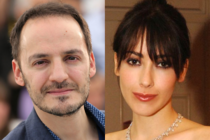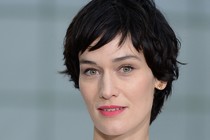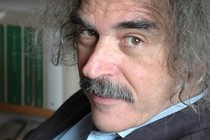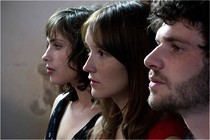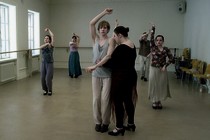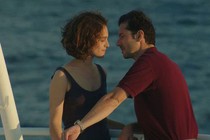La Sapienza, a mysterious journey towards the light
- With his latest film La Sapienza, in competition in Locarno, Eugène Green once again focuses on light, as the sole antidote to the crisis that plagues us

Forever faithful to a cinematography that is almost innately his own, Eugène Green takes us on a journey through Ticino and Italy in the search for that “something greater”, as he himself defines it, that gives meaning to our existence. With his latest work, La Sapienza [+see also:
trailer
film profile], making its world debut at the Locarno Film Festival,the mysterious French filmmaker once again offers us a subtle, fresh and courageous film, that is not afraid to express itself in a unique, anachronistic language, which most definetly goes against the grain.
Using his desire to investigate a period that is particularly dear to him, the Baroque period, and through the life and works of architect Francesco Borromini, Eugène Green seeks to convey to us something deeper: the need to find in the past answers to the present. Just like Borromini sought, through his masterpiece, the Sapienza church in Rome, to push us towards the light, Eugène Green firmly believes that cinema is capable of bringing new life, of illuminating our already dying culture. Although the aims may seem too demanding, La Sapienza has the great virtue of not falling into a sterile “intellectualism” preferring instead emotions, as the only means that can lead us beyond the banality of daily life. And so, as the director says, let us surrender ourselves to our emotions and respond to the film spontaneously, physically.
The story of La Sapienza begins with Alexandre Schmitdt (Fabrizio Rongione), a French architect with a brilliant career behind him, and his wife, Aliénor (the wonderful Christelle Prot Landman), a sociologist specialized in disadvantaged social backgrounds. The couple share a deep concern for their respective professions. A void of silence has emerged between them that risks causing irreversible damage to their relationship. Aware of the need to change the situation, Alexandre decides to take up a project that is very important to him but abandoned for a long time, too long: to write a book on the Baroque architect Francesco Borromini. Aliénor, in need of detaching herself from her work, decides to accompany him. But in Stresa their fates diverge momentarily to rejoin once again later on, in a sort of crucial final rennaisance. Although somewhat reluctant, Alexandre thus decides to leave for Rome in the company of a young future architect whom he meets in Stresa itself, while his wife chooses to remain in the company of the architect’s frail sister (the young and promising Arianna Nastro). With this trip, Alexandre and Aliénor not only try to realize a project that has been pending for a long time but, above all they seek to overcome the frustration of everyday life, to find the light, to redeem themselves.
Through La Sapienza Eugène Green strives to give us (back) the means to make peace with an everyday existence that often pins us down. Just like Borromini, the French director and his chacracters push us towards something greater, they give back a voice to our feelings, they free us, even if just for the duration of the film, from a suffocating routine.
La Sapienza is a MACT Productions and La Sarraz Pictures co-production. It’s distributed worldwide by La Sarraz Pictures.
(Translated from Italian)
Did you enjoy reading this article? Please subscribe to our newsletter to receive more stories like this directly in your inbox.













